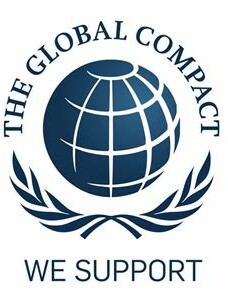Part of the European Forum Alpbach, this week, BKMC CEO Monika Froehler joined fellow speakers Dr. Katharina Mader (Dept. of Economics at the University of Vienna) and Dr. Mireille Ngosso (medical doctor and social democratic politician in Vienna) for a virtual discussion on the role of women during crises.
The session was hosted by the Initiative Group Alpbach Vienna (IG Vienna) and moderated by Elisabeth Lechner (President of IG Alpbach Vienna). The speakers focused on women’s role at the forefront of the Covid-19 crisis and the structures of inequality that the pandemic has brought to light.
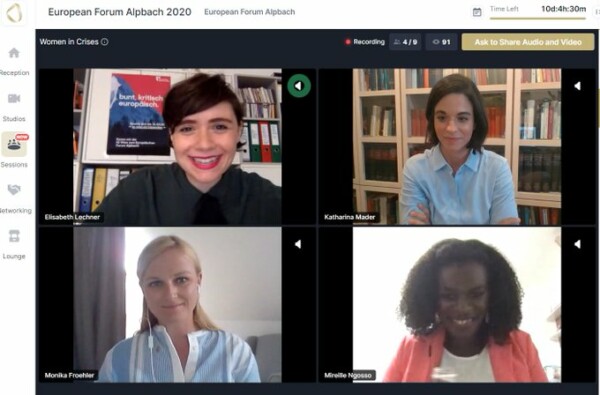
Dr. Mader shared results from her recent study with more than two thousand participants on the impact of the pandemic on the distribution of unpaid work in Austrian households (childcare and housework). The survey paints a picture of urban, middle-class women affected by the crisis; mothers in two-parent households were found to be responsible for the same amount of unpaid care work as those in single-parent households. These initial findings illustrate that, at least in this cross-section of Austrian society, the pandemic has not altered gender-specific norms in terms of unpaid and housework.
Dr. Ngosso started her intervention by sharing her personal experience growing up in crisis – fleeing conflict in the Democratic Republic of Congo (DRC) as a child and later living in a women’s shelter for over a year with her mother in Vienna. She emphasized that the current situation for African women who have lost their livelihoods is evidently much worse than the experience of Austrian women.
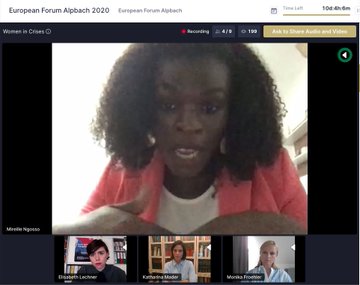
She also mentioned that 88% of care workers in Austria are women. However, pointing out that women have had to double burdened themselves to take care of their homes and children while holding jobs. She also shared that 85% of those now unemployed in Austria due to the pandemic are women. Additionally, she said that working hours should be made more compatible so that women can have the opportunity to work full-time jobs and not be forced into part-time work. Dr. Ngosso finished with a call to action, emphasizing that it is the responsibility of political leaders to tackle gender inequality and unequal pay especially when comes to social services jobs.
Lastly, Dr. Ngosso was asked to share a bit about her work in organizing the Black Lives Matter demonstration held in Vienna. She shared her surprise to see 50.000 people join the event, showing a strong sign of solidarity.
BKMC CEO Monika Froehler’s keynote speech focused on three aspects of women in crises: women leaders during the pandemic, women’s situation in the pandemic, and the opportunities that can come from this challenging time.
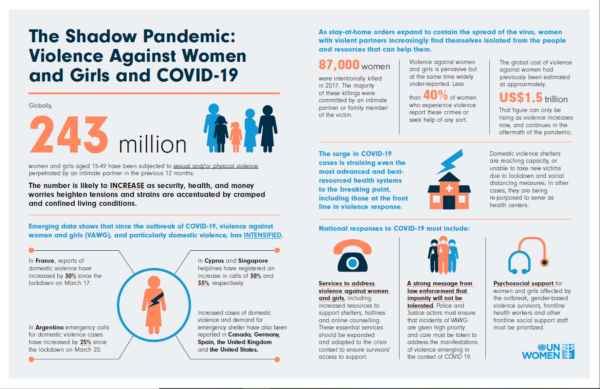
She shared that only 7% of humanity is currently governed by women even though half of the world population is women. She then noted that, in the current crisis, women leaders are outperforming their colleagues in responding to the pandemic by utilizing a more collaborative approach. She added that, while this observation is profound, it does not mean that women are innately better leaders than men.
Froehler continued by sharing the various challenges that women and girls are met with globally from child marriage, Female Genital Mutilation (FGM), unequal pay, domestic violence, sexual violence, violence as a weapon of war, a lack of access to education, lack of property rights, and more. In addition, women are now facing additional negative and disproportional impacts from the pandemic.
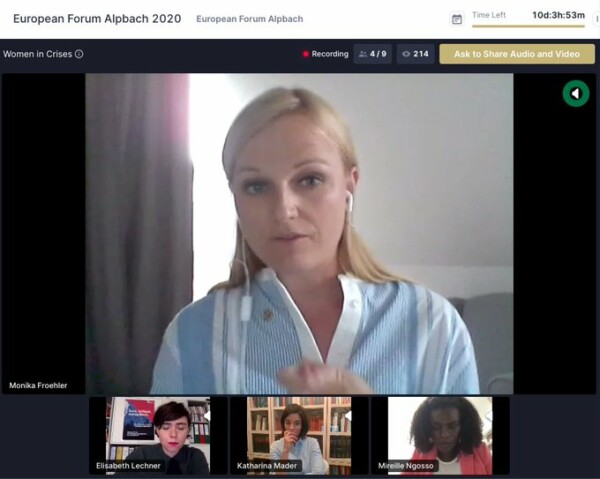
Lastly, Froehler highlighted the opportunities that exist, emphasizing that, “Women are indeed the solution to much of this.” Women should be empowered to use an entrepreneurial mindset, to tackle climate change, to be active participants in peace-making processes, and to take on the diverse challenges we are confronted with globally.
At the end of the session, concluding that women are suffering more from the current pandemic than men, the floor was opened up for questions. One question that came up often was about the role of men in this process. Dr. Ngosso responded that “Men and women have to work together, side-by-side for change.” Dr. Mader called on men to be, “Active fathers – you are setting an example.” Lastly, Froehler added, “Men are half of humanity and we must work in collaboration to achieve what we want to achieve.”
Learn more about Forum Alpbach here.

